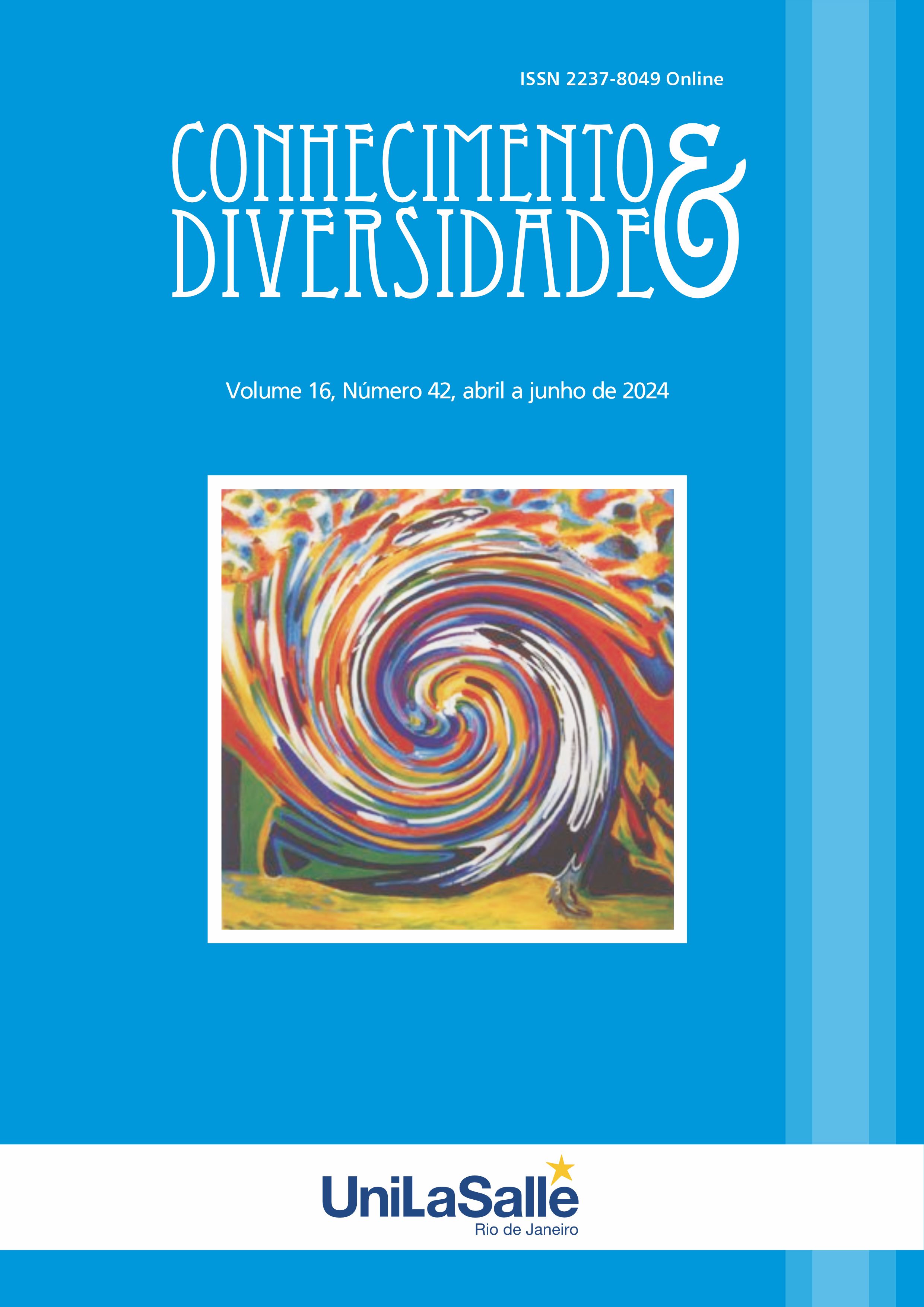PROFILE OF MASTER'S AND DOCTORAL STUDENTS IN ACCOUNTING SCIENCES IN BRAZIL
AN INTERSECTIONAL ANALYSIS
DOI:
https://doi.org/10.18316/rcd.v16i42.11601Keywords:
Profile, Students, Postgraduate, Accounting, BrazilAbstract
This study aims to identify the profile of master's and doctoral students in Accounting Sciences in Brazil through an intersectional analysis, which contributes to understanding the set of social markers that each individual has. As for the methodological aspects, this is a descriptive-exploratory documentary study with a mixed approach. The open database of the Foundation for the Improvement of Higher Education Personnel (CAPES) was analyzed for the base year 2021, which has the most recent information on the characteristics of postgraduate students in the country. As for the results, of the total sample of 1,829 students with active enrollment in 36 programs, a low presence and representation of students over 50 years of age and foreigners was identified, as well as the lack of graduate programs in Accounting Sciences in the Northern Region of Brazil until December 2021. In addition, the CAPES database lacked information related to gender, race, class and condition, with regard to People with Disabilities (PwD) and types of disability. At the end of the study, it was suggested that graduate programs and CAPES include this other socio-demographic data so that studies and public policies can be developed with a view to the inclusion and permanence of dissident students in master's and doctoral programs in the country.
References
AZEVEDO, S. J. S. Territory and sociodemographic analysis: contributions to the definition of social demands using the example of telecommunications and public health in Campinas. New metropolises in São Paulo: population, vulnerability and segregation. Campinas: Nepo/Unicamp, p. 493-513, 2006.
BERGAMINI, Beatriz Sinfronio. Is accounting for women? the influence of gender stereotypes on the career choice of women in Accounting Sciences. 2020. Doctoral Thesis. University of Sao Paulo.
BRAZIL. Ministry of Education. National Education Council. Chamber of Higher Education. CNE/CES Resolution No. 1, of April 3, 2001. Establishes standards for the operation of higher education courses. Official Gazette of the Union, Brasília, DF, 4 April. 2001. Section 1, p. 38. Available at: http://portal.mec.gov.br/seed/arquivos/pdf/tvescola/leis/CES0101.pdf. Accessed on: 13 July. 2023.
CAPES. Master's and Doctorate: what are they? Available at: https://www.gov.br/capes/pt-br/acesso-a-informacao/acoes-e-programas/avaliacao/sobre-a-avaliacao/avaliacao-o-que-e/sobre-a -evaluation-concepts-processes-and-norms/masters-and-doctorates-what-are. Accessed on 11 June. 2023.
CAPES. Open Data. 23 Dec. 2022. Available at: https://www.gov.br/capes/pt-br/acesso-a-informacao/transparencia-e-prestacao-de-contas/dados-abertos. Accessed on: 11 June. 2023.
CÍRICO, Juh; TELLES, Rafael Scuizato; GALVÃO, Akira Aikyo. (Trans)forming Lives: A discussion on Diversity in Accounting Organizations. Belém: RFB Editora, 2021. 55. ISBN 978-65-5889-262-5.
CÍRICO, Juh. Accounting. Accounting, Auditing & Accountability Journal, vol. 35, no. 8, p. 1894-1895, 2022. https://doi.org/10.1108/AAAJ-10-2022-173.
CÍRICO, Juh; SILVA, Marli Auxiliadora da. AAAJ Literature and Insights Resist to exist in accounting. Accounting, Auditing & Accountability Journal, vol. 37, n.1, 2024. https://doi.org/10.1108/AAAJ-01-2024-214.
CLOSS, Lisiane; MAHAT, Marian; IMMS, Wesley. Learning environments’ influence on students’ learning experience in an Australian Faculty of Business and Economics. Learning environments research, p. 1-15, 2022.
FEDERAL ACCOUNTING COUNCIL. CFC. Presidents. Available at: https://cfc.org.br/presidencia/presidents/. Accessed on 13 Jul. 2023.
CORTELLA, Mário Sérgio. Diversity: learning to be human. São Paulo: Littera, 2020.
CORTELLA, Mário Sérgio. Being human means being together: for a life without prejudice and diversity. São Paulo: Planeta do Brasil, 2022.
CRENSHAW, Kimberlé. Document for the meeting of experts on gender-related aspects of racial discrimination. Journal of feminist studies, v. 10, p. 171-188, 2002. https://doi.org/10.1590/S0104-026X2002000100011.
GALVÃO, Akira Aikyo. An autistic in postgraduate accounting. Accounting, Auditing & Accountability Journal, vol. 36, no. 7/8, p. 1871-1872, 2023.
GALVÃO, Akira Aikyo; CÍRICO, Juh. Believe, resist, and conquer. Accounting, Auditing & Accountability Journal, vol. 35, no. 8, p. 1898-1899, 2022. https://doi.org/10.1108/AAAJ-10-2022-175.
GHIO, Alessandro; MCGUIGAN, Nicholas; POWELL, Lisa. The queering accounting manifesto. Critical Perspectives on Accounting, vol. 90, p. 102395, 2023. https://doi.org/10.1016/j.cpa.2021.102395.
GUIMARÃES, José Ribeiro Soares. The importance of using sociodemographic information in the planning process. 57th SBPC Annual Meeting, 2005.
RUMENS, Nick. Towards queering the business school: A research agenda for advancing lesbian, gay, bisexual and trans perspectives and issues. Gender, Work & Organization, v. 23, n. 1, p. 36-51, 2016.
SANTOS, Boaventura de Sousa. Beyond abyssal thinking: from global lines to an ecology of knowledge. New CEBRAP studies [online]. 2007, n. 79, p. 71-94. Available at: https://doi.org/10.1590/S0101-33002007000300004.
SANTOS, Márcia Juliana da Cunha et al. Academic performance and sociodemographic, behavioral, psychological and teacher training characteristics: analysis of Portuguese business students. Revista Contabilidade Vista & Revista, v. 31, no. 12, 2020.
SOUZA, Kellcia Rezende; KERBAUY, Maria Teresa Miceli. Quantitative-qualitative approach: overcoming the quantitative-qualitative dichotomy in education research. Education and Philosophy, v. 31, no. 61, p. 21-44, 2017. https://doi.org/10.14393/REVEDFIL.issn.0102-6801.v31n61a2017-p21a44.
Downloads
Published
Issue
Section
License
Copyright (c) 2024 Juh Círico, Akira Aikyo Galvão, Marli Auxiliadora da Silva

This work is licensed under a Creative Commons Attribution 4.0 International License.
As recommended by the Public Knowledge Project, RCD adopts for its articles a CREATIVE COMMONS Attribution CC BY 4.0 license.
This license allows others to distribute, remix, adapt and build upon your work, even commercially, as long as they credit you for the original creation.
This is the most appropriate license offered.
Recommended for maximum dissemination and use of licensed materials.



